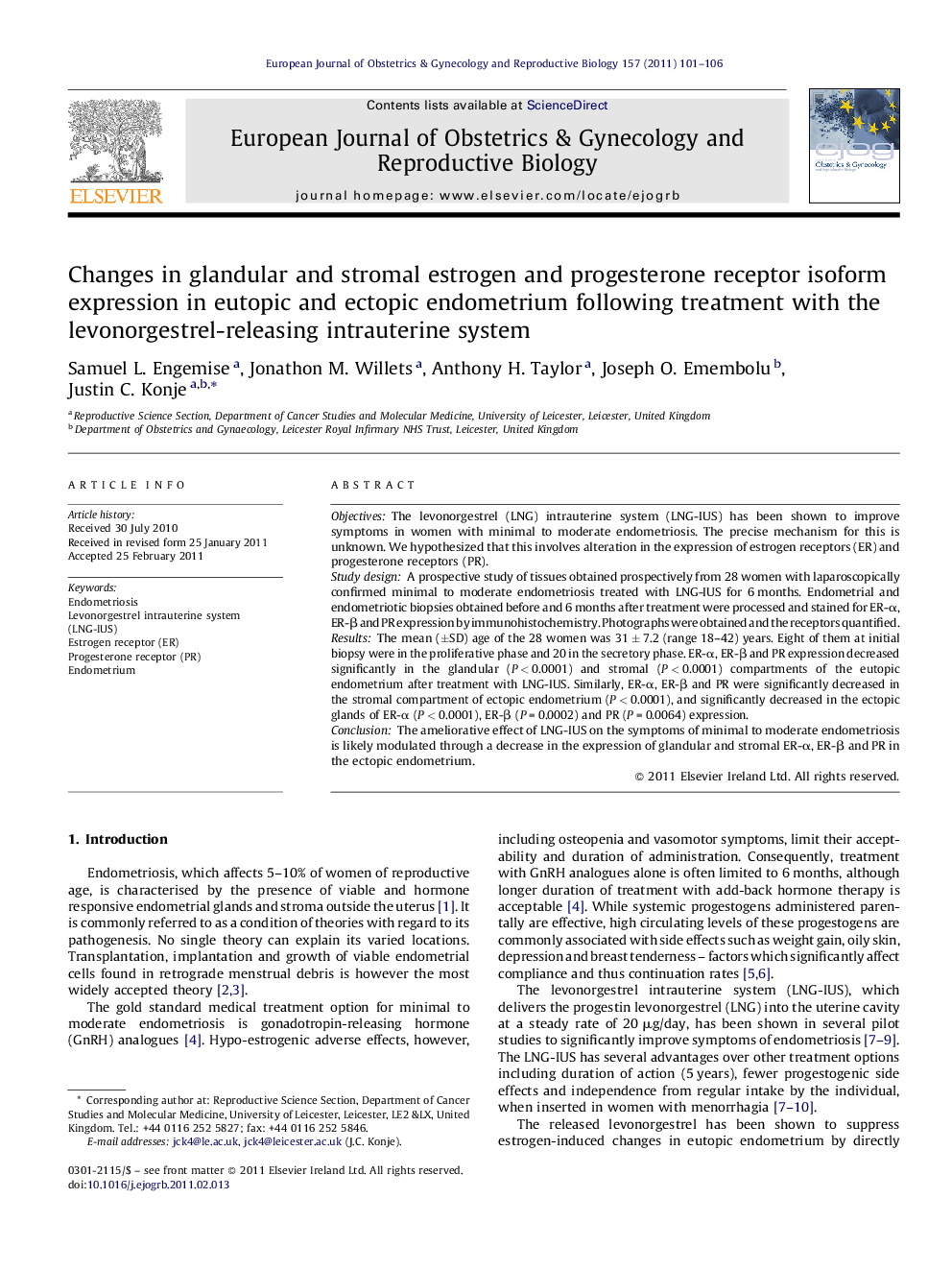| Article ID | Journal | Published Year | Pages | File Type |
|---|---|---|---|---|
| 3920559 | European Journal of Obstetrics & Gynecology and Reproductive Biology | 2011 | 6 Pages |
ObjectivesThe levonorgestrel (LNG) intrauterine system (LNG-IUS) has been shown to improve symptoms in women with minimal to moderate endometriosis. The precise mechanism for this is unknown. We hypothesized that this involves alteration in the expression of estrogen receptors (ER) and progesterone receptors (PR).Study designA prospective study of tissues obtained prospectively from 28 women with laparoscopically confirmed minimal to moderate endometriosis treated with LNG-IUS for 6 months. Endometrial and endometriotic biopsies obtained before and 6 months after treatment were processed and stained for ER-α, ER-β and PR expression by immunohistochemistry. Photographs were obtained and the receptors quantified.ResultsThe mean (±SD) age of the 28 women was 31 ± 7.2 (range 18–42) years. Eight of them at initial biopsy were in the proliferative phase and 20 in the secretory phase. ER-α, ER-β and PR expression decreased significantly in the glandular (P < 0.0001) and stromal (P < 0.0001) compartments of the eutopic endometrium after treatment with LNG-IUS. Similarly, ER-α, ER-β and PR were significantly decreased in the stromal compartment of ectopic endometrium (P < 0.0001), and significantly decreased in the ectopic glands of ER-α (P < 0.0001), ER-β (P = 0.0002) and PR (P = 0.0064) expression.ConclusionThe ameliorative effect of LNG-IUS on the symptoms of minimal to moderate endometriosis is likely modulated through a decrease in the expression of glandular and stromal ER-α, ER-β and PR in the ectopic endometrium.
